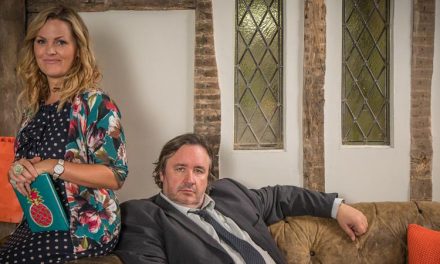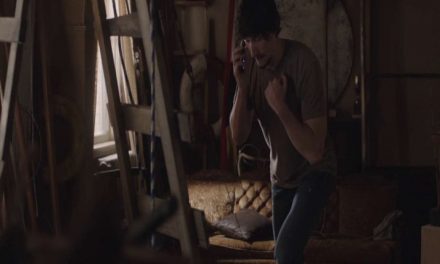I am at the end of my third month of sick leave after suffering an acute, stress-induced, asthma attack at the beginning of February, which resulted in an ambulance ride into A&E and an 8-day stay in hospital. This is not the kind of experience that I would usually share publicly but the irony of sitting in a hospital bed, replete with drip and oxygen mask, answering emails and working on this website was not lost on me, particularly in the light of the series of blogs on overwork in Higher Education that CST has published over the past few months (here, here, here and here) so, for that reason, I feel compelled to share my experience, not as an example of ‘indulgent and ineffective moaning’ but as part of the ‘collective language and action’ articulated by Cathy Johnson in her first blog on this subject at the end of January this year. My intention with this blog is to ask: If we are to avoid making ourselves ill through overwork, how on earth are we to manage our increasingly unmanageable workloads?
I have worked in Higher Education for over 20 years. I started at a large polytechnic and thought that the dysfunctional nature of that institution was unrepresentative of the true nature of Universities. I was soon to be disabused of that particular notion. Reading Richard Hewett’s blog of the 13thFebruary, where he outlined his experience of being a ‘non-salaried tutor’ reminded me of how I started, the years that I consider my apprenticeship during which I worked in a variety of Universities on too many film and TV related subjects to list here, often thrown in at the deep end, sometimes starting within a week of the first phone call. I once taught in 3 different institutions in one semester, each in distant parts of the country at both under- and post-graduate levels. I have travelled 3 hours to lecture at 9am on Monday morning and been scheduled to teach at 5pm on Friday evenings at the same institution – two graveyard shifts in a week. And, all the time, not being paid for travel, preparation, marking and never for the semester breaks or long summer holidays, often reduced to office work to bolster my income, marking scripts in my lunch hour and always worrying about the next semester’s work and how long I could possibly continue without a regular income.
No wonder I consider myself lucky to now, at last, have a permanent position.
And this idea of luck is reinforced by the idea that I am doing what I love: teaching film and television. Yet, as Cathy Johnson outlines in the blog that kicked off this whole discussion, this ‘study what you love’ rhetoric means that the ‘boundaries between work and leisure are deliberately blurred’ which often leads to problems of over-working. For example, if I watch television in the evening is that leisure or work? Particularly when television viewing is crucial for both my teaching and research? Surely evening viewing then counts as working, which means I often put in a 12-hour working day 4 or 5 days a week. How do film and TV scholars draw the line between watching for pleasure and watching for work? This is a question already posed by Elke Weissmann in her latest blog for CSTonline and was taken up by Karen Boyle on her Facebook page in response to Elke’s blog.
In addition, the post that I currently hold is in a creative arts department in a post-92 University with large student numbers and a heavy teaching load (some 550 hours spread over the year). Working in a school of creative arts means that the emphasis is on production and practical skills – all well and good and a most enjoyable place to work – but it also means a mismatch in the way teaching loads are calculated. So, while it is considered reasonable for production staff to prepare their lectures in an hour (a questionable decision in the first place), academic lectures inevitably take considerably longer. I am certainly not able to research and write a lecture in an hour, especially when teaching students that often don’t even watch TV (as discussed by Cathy here), meaning that the sourcing and use of extracts is a necessity not a luxury. Suffice it to say, along with most academics, much of my time during the semester is taken up researching for, preparing and writing lectures; seeing students; marking essays; responding to an ever-increasing email load and doing admin.
And then there is the question of research – I (along with many of my colleagues in similar institutions) very rarely get time to research during the teaching-heavy semester, a problem that is exacerbated by the lack of sabbaticals awarded to academic staff in my institution. In this I am certainly not alone. As the Times Higher points out, post-92 Universities rarely offer this luxury. And yet, my colleagues and I are still expected to turn out the same high quality research as our colleagues in more research friendly (read pre-92) Universities. Here I am not suggesting that the post-92 Universities churn out research of a lower quality or that the pre-92 Universities have it easy, but that, wherever we work, we are under increasingly constrained and pressurised conditions. Let’s be honest, in today’s climate, whether at a pre- or post- 92 institution, it is a miracle that any of us ever manage to publish at all.
Let me be clear, I am not claiming that my lot is worse than any other public sector worker. Having spent some time in hospital I witnessed first hand how the Government’s austerity measures are impacting on the National Health Service. And I know that there are other problems in more research driven Universities: the unbearable pressure of winning funding grants at Imperial and the threat of job losses at Warwick Business School are just two examples that spring to mind. In fact, in the great scheme of things I consider myself lucky to work in an institution that values its staff as more than just research income fodder.
But, there is still a problem that afflicts all of us when the expectations of management, research departments and students combine into that perfect storm of overwork that impacts upon all of us regardless of specific institutional demands.
In March 2014 The Guardian published an article about the rise of mental health problems in Higher Education with, among other things, ‘the pressures of greater job insecurity, constant demand for results and an increasingly marketised higher education system’ being blamed for stress levels leading to ‘nearly half of academics’ showing sign of psychological distress or ‘burnout’. Exacerbating the problems of an increased workload and the uncaring nature of the academic environment is the internalisation of the ‘doing what you love’ ethos. At that time Dr Nadine Muller suggested that the blurring of the lines between the personal and the professional – the idea of ‘doing what you love’ – was one of the hardest hurdles to overcome in combatting the culture of overwork Higher Education. Describing ‘burnout’ as one of the biggest problems in academia, John Hamilton, head of safety, health and wellbeing at Leeds Metropolitan University, describes how the condition manifests itself ‘as a “significant disengagement” with an employer, in which a staff member no longer feels in charge of their role.’ A description that could be applied to a large number of my colleagues across the sector, particularly those, like me, who ‘simply do not like the changes’ in Higher Education ‘that have taken place over the past 20 years.’
In Karen Boyle’s response to Cathy’s blogs she outlines the part we play in our failure to move beyond the workplace whinge to acknowledge how tough our working conditions really are. Higher Education’s zero hours contract tradition is part of the bigger picture and, in the light of a recent development at Warwick University, promises to further erode the rights of visiting lecturers. This deeply unfair system feeds into that ‘doing what we love’ ethos and, once we do get that much-desired job in University, there is a tendency to work hard to ‘prove’ just how much we deserve it. Lest we forget how thankful we should be, apocryphal tales abound about how many applications there are for each lecturing position. In this climate it is surprising that not more of us work to the point of near collapse.
As I lay in my hospital bed, barely able to breath, uploading content to this website, I never questioned that this is something that I should not be doing. After all, CSTonline runs on love and favours, and my failure to work means that I oppress my long-suffering co-worker Debra, whose hours of work on the site are unpaid anyway. But is this not what is at the core of the problem? By continuing to work on my sickbed I feed into that expectation that ‘this is what academics do’ and by doing so I feed that culture of overwork that made me ill in the first place. I would even go so far as to say that my (over)work ethic has stoked a dysfunctional system that depends upon grace and favour commitments from its academic workforce who, however inadvertently, oppress each other by adhering to a deeply flawed system that depends upon their unpaid, and freely given, overtime in order to function.
Stress in Universities, for both students and staff, has reached such a critical moment that, as Cathy points out, The Guardian, recently ran a series on the problem. Articles range from students and staff being scared to seek help for their problems to detailing how Human Resources departments largely fail to acknowledge the problem of work induced stress because they would then ‘have to admit to a situation that is contrary to most of its policies’. In the light of increased competitiveness in the sector it is highly unlikely that there will be a systemic review of institutional policies, particularly if, according to a recent survey, the aggressive nature of the REF rounds has led to a rise in workplace bullying. Let me be clear, I am not, as Karen’s blog warns against, letting my institution ‘off the hook’, I may have been guilty of the ‘self-exploitation’ described by Cathy up until my illness but it is hardly surprising when the culture of overwork in academia has become so normalised that, according to Rosalind Gill (and quoted in Cathy’s blog) ‘the contemporary Academy operates in and through technologies of selfhood that are producing new kinds of labouring subject: individualised, responsibilised, self-managing and monitoring’ in other words we have learnt to police ourselves, internalising the expectations of management and students, often to the detriment of our own wellbeing.
In this case I see my recent hospitalisation as a dire warning to not only heed Audre Lorde’s words (quoted by both Cathy and Karen) but to truly take them to heart and to act upon them. In the end, I no longer have a choice but to take care of myself. In the past few years I have overworked to the point of collapse, using annual leave to research and write (instead of taking holidays), drafting unsuccessful funding bids, fulfilling the requisite REF submission, supervising an inordinately large amount of dissertations, trying to provide pastoral care for an ever-growing student body as well as continuing to run this website, attend conferences, review and edit articles and work on the editorial board of Critical Studies in Television. I am not alone in working this hard and I can’t quite see how I can fulfil my contracted duties without putting in extra hours – often having to work evenings and weekends. Even though I am used to hard work, I am increasingly finding it difficult to sustain this level of commitment, I no longer have as much energy as my younger colleagues and, in my struggle to keep up with the workload, I suffered that acute asthma attack and ended up in hospital, quite literally nearly working myself to death.
Regardless of whether we can keep up the pressure, regardless of where we are in our careers and how much we love our jobs, it is now time for us to collectively begin to care for ourselves and by doing so take care of each other. Only if we implement ‘a collective language and action’ will we stop the culture of overwork that is endemic in academia. I am not sure how we will get through the amount of work expected of us in a 37.5 hour working week but, for me, there will never be a better time to engage with Audre Lorde’s call for self-preservation as an act of political warfare, particularly if I want to avoid another lengthy hospital stay.

Kim Akass is the managing editor of CSTonline, one of the co-founding editors of Critical Studies in Television, co-editor of the ‘Reading Contemporary TV Series’ at I.B. Tauris. She is also a wife, mother, friend and colleague and hopes to restore her work-life balance to some kind of normality in the near future.
I would like to thank Debra Ramsay for her amazing support on this website. Without her commitment to CSTonline we could not have continued in the last few years and more particularly in the past 3 months when she has kept the site live. Thank you Debra.
For an account of what is happening in a particular area of US Higher Education read Amanda Ann Klein’s latest blog – Starving the Beast.
Here are a series of links to other articles written about this problem:
Entire USC First-Year MFA Class is Dropping Out
King’s GTAs call for an end to exploitative working conditions
Teacher’s work more overtime than any other professionals analysis finds
Marina Warner Diary, London Review of Books Vol. 36. No. 17, 11 September 2014
Attempts to ‘gag and silence’ academics are commonplace, TES, 11 Septmber 2014
Marina Warner, Learning My Lesson, London Review of Books, Vol. 37 No. 6, 19 March 2015





